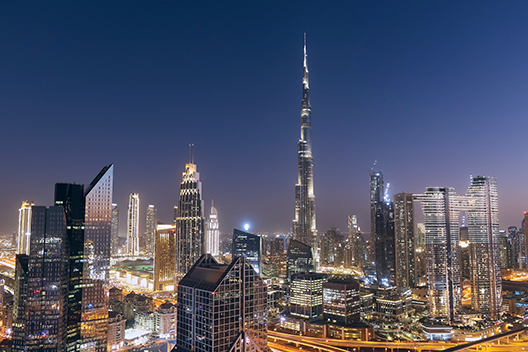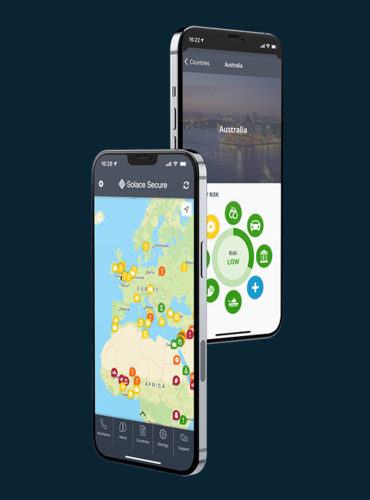Security in Dubai, UAE and COP28 Climate Change Summit

The United Nations Climate Change Summit, COP28 will be hosted in Dubai at the end of the month to bring together global leaders in an effort to take action against climate change.
The Middle East, with its vast energy resources, intricate alliances, and ongoing conflicts, plays a crucial role in the global energy landscape, and the consequences of regional conflicts and geopolitical dynamics in the area have far-reaching implications for the world’s environmental and sustainability goals.
However, in addition to the long-standing geopolitical tensions and conflicts, the Israel-Hamas war holds the potential to heighten tensions and detract from the success of this summit, with the likely possibility of an increasing security risk to Westerners travelling to Dubai.
In this article:
- Security factors during COP28 in Dubai
- Background on Houthi Movement in Yemen
- UAE’s involvement in the Yemen conflict
- Potential for further destabilisation triggered by the Israel-Hamas War?
- Potential outcomes for security in Dubai and UAE
Security factors during COP28 in Dubai
Many Israeli climate organisations have stated that they will boycott COP28 and it is highly likely that Israel will be forced to withdraw from COP28 entirely due to security concerns.
However, COP28 will still attract thousands of Westerners, including many world leaders, diplomats and influential businesspeople. It is likely that COP28 represents an attractive target for terrorist actors due to the influx of foreigners and the international publicity of the event.
On 29 October, the UK’s Foreign, Commonwealth & Development Office (FCDO) issued a warning for British tourists visiting the United Arab Emirates (UAE), indicating an increased threat of terrorist attacks. The advisory warns of a very likely risk of terrorist attacks, which could be indiscriminate and may target places frequented by foreigners. While terror attacks within the UAE and rare and the Emirati counter-terrorist forces are heavily financed and well-trained, there is a realistic possibility that forces will be overstretched as a result of COP28 and that self-radicalisation within the region will increase as a result of the situation in the Gaza Strip.
Background on Houthi Movement in Yemen
In 2004, the Iranian-backed Houthi Movement, otherwise known as Ansar Allah (Supporters of God), rebelled against the Yemeni government with the aspiration of taking control over the entirety of Yemen. The conflict escalated in 2014 when Houthi forces seized Yemen’s capital, Sanna, and forced the Yemeni government into exile. This led to the deployment of a Saudi-led coalition in 2015 that seeks to establish full territorial control by the internationally recognised government within Yemen.
The Saudi-led coalition consists of predominantly Sunni and Arab nations such as the UAE, and is backed by Western powers including the USA, UK and France.
UAE’s involvement in the Yemen conflict
The UAE’s involvement in the coalition has involved a range of military and logistical support for the government of Yemen, including air strikes, the deployment of troops to Yemen and training local Yemeni militias allied to government forces.
The UAE’s involvement in the conflict has made it a target for Houthi forces who have developed an arsenal of long-range drones and missiles facilitated by Iran. Houthi forces have conducted numerous drone and missile attacks on the UAE, typically targeting strategic locations in Abu Dhabi and Dubai, such as airports, ports and oil facilities.
Since 2019, the UAE has significantly reduced its military footprint in Yemen, however it still projects power through its support of a number of militias allied to Yemeni government forces. The Houthis have conducted attacks on the UAE in response to successful military operations by pro-government militias supported by Abu Dhabi, which resulted in a series of high-profile attacks in 2022 against high-profile targets in Abu Dhabi and Dubai.
While the UAE maintains a sophisticated air-defence capability and has been able to shoot down the majority of projectiles within its airspace, it is likely that the Houthis have sufficient drones and missiles to overwhelm and penetrate UAE air defence.
The Houthi Movement have currently been in talks with Saudi Arabia and other local actors regarding a ceasefire.
Potential for further destabilisation triggered by the Israel-Hamas War?
There is a realistic possibility that the Israel-Hamas war destabilises the Middle East, and Iran exploits the situation to order its proxy forces to attack Israeli, Western and anti-Iranian forces and interests throughout the region.
Houthi forces have attempted drone and missile attacks on Israel in response to the Israel Defence Forces (IDF) military activity in the Gaza Strip, with all attacks to date intercepted by IDF or US air defence.
There is a realistic possibility that both Saudi and the UAE will be forced to respond to Houthi attacks which will invariably provoke retaliatory attacks from the Houthis. Moreover, there is also a realistic possibility that the Houthi rebels might seek to exploit the current situation in the Middle East to conduct attacks on the UAE.
In the event of a wider conflict involving Israel, the Houthi rebels could exploit regional tensions to launch missile and drone attacks, engage in cyber warfare, and employ asymmetric tactics against the UAE, aiming to distract or pressure the UAE due to its involvement in regional security initiatives and the Saudi-led coalition.
A further motivation for the Houthis, who are backed by Iran and reportedly allied to Hezbollah, would be to present themselves as defenders of the Palestinian cause and target the UAE for its recent normalisation of relations with Israel and ties to the West.
Potential outcomes for security in Dubai and UAE
If the Israel-Hamas conflict is not contained and provokes a US retaliation, the Supreme Leader of the Houthi Movement has issued a statement declaring that they will respond with drones and missiles, and with the Al Dhafra Air Base located just to the south of Abu Dhabi, it is highly likely that Houthi forces will attempt to target the US military and US interests within the UAE.
For those travelling on business to UAE or will be attending COP28, Solace Global Risk facilitate safer travel for corporate travellers, executives and private clients, with travel risk assessments and end-to-end secure journey management.
Security solutions include intelligence and advisory, latest security alerts through Solace Secure, security trained drivers and airport meet and greet.


